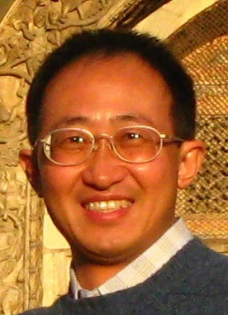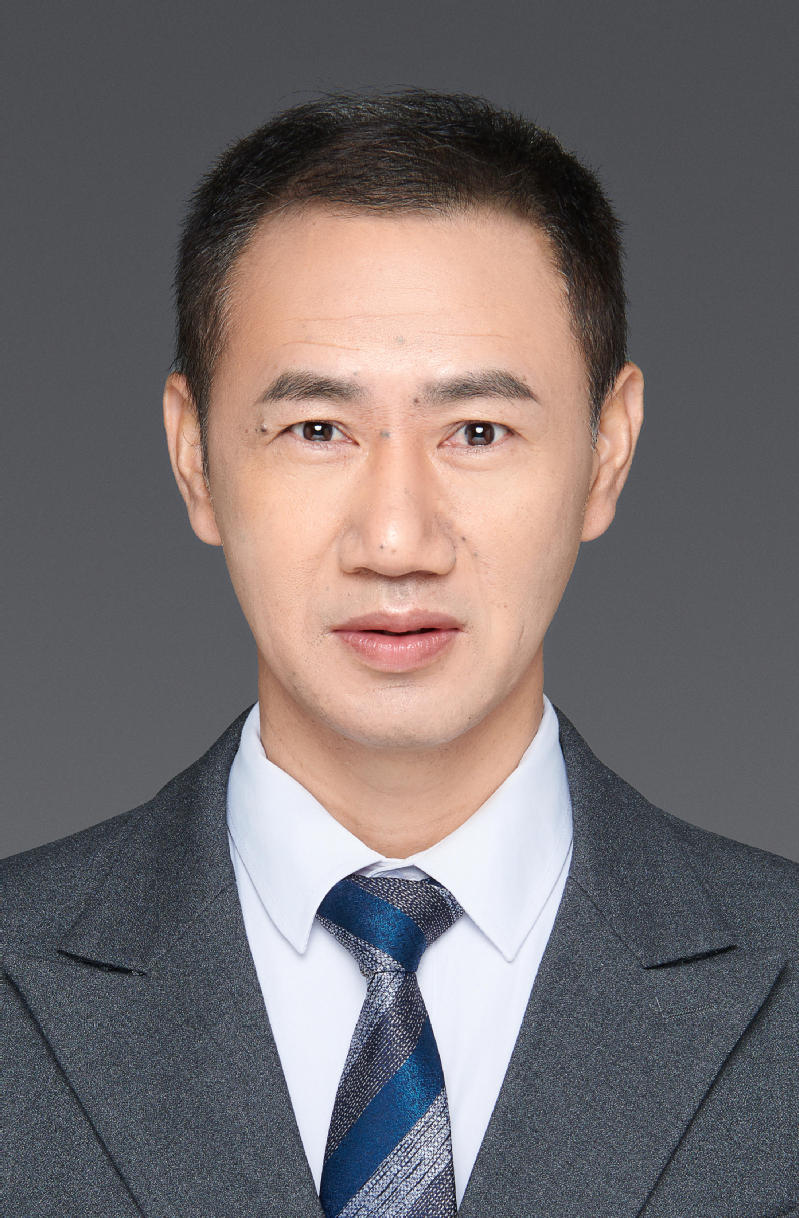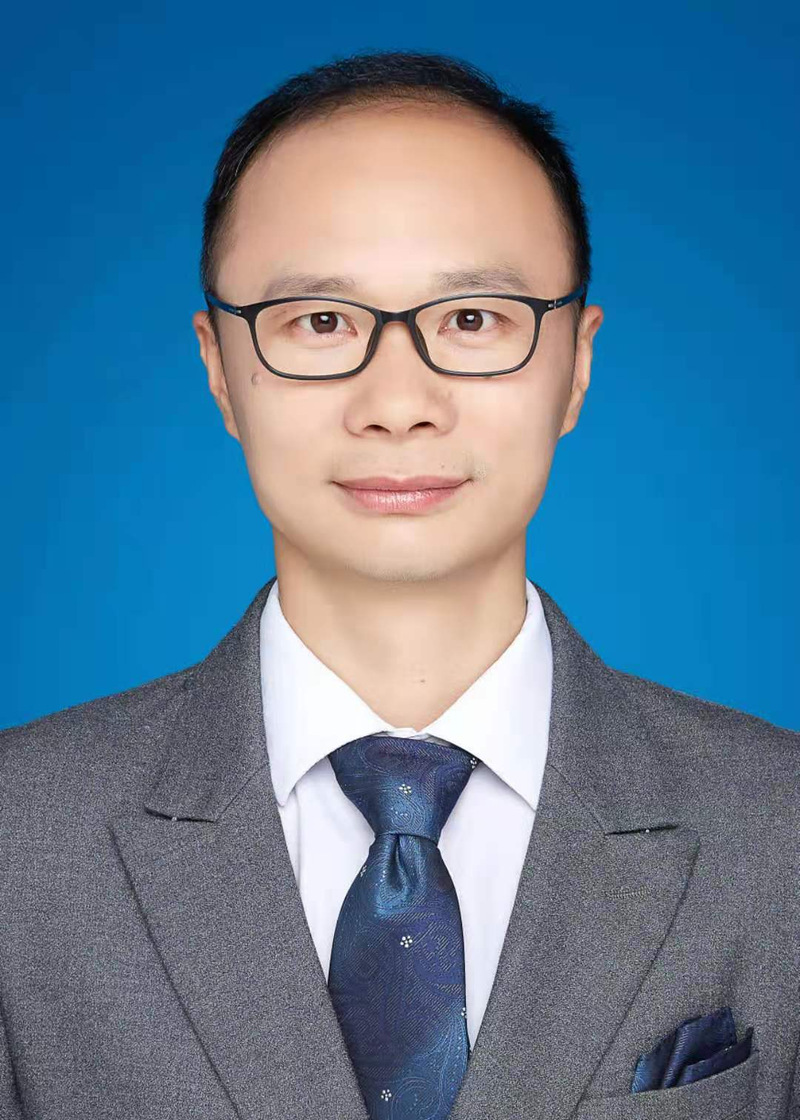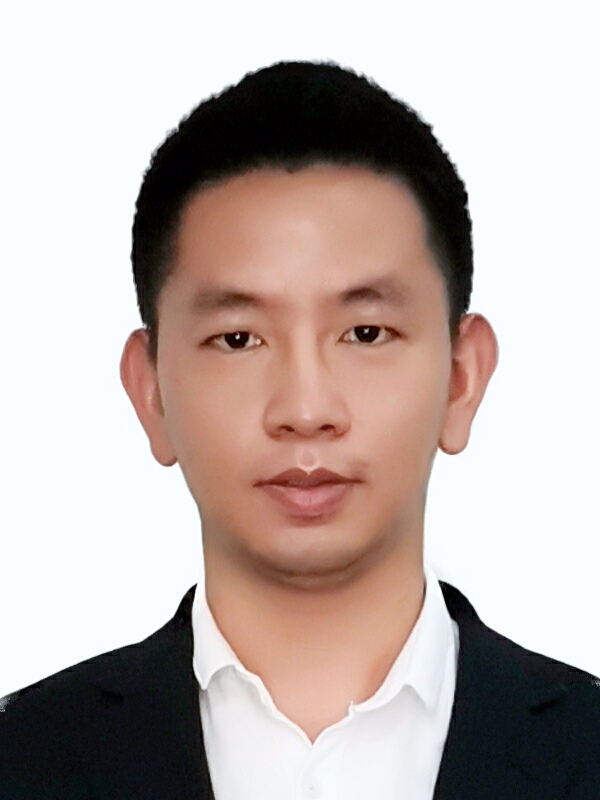
Speakers

Prof. Honggang Zhang
Zhejiang Lab, China
Bio: Dr. Honggang Zhang is the Chief Managing Editor of Intelligent Computing Journal, a Science Partner Journal jointly established by AAAS (American Association for the Advancement of Science) and Zhejiang Lab. He is an Adjunct Professor of College of Information Science and Electronic Engineering, Zhejiang University, China. He was an International Chair Professor, Comin Labs Excellence Center, Université Européenne de Bretagne (UEB) & Supélec, France (2012-2014). He was an Honorary Visiting Professor of the University of York, UK (2010-2018).Dr. Honggang Zhang has been the Lead Guest Editor of the IEEE Communications Magazine feature topic issues on “Green Communications” (2010-2011). He was the Series Editor of IEEE Communications Magazine (Green Communications and Computing Networks Series). He is theco-editor/co-author of two books with the titles of “Cognitive Communications -Distributed Artificial Intelligence (DAI), Regulatory Policy & Economics, Implementation” (Wiley) and “Green Communications: Theoretical Fundamentals, Algorithms and Applications” (CRC Press), respectively.
Speech Title: The Thinking and Practice on Establishing NetGPT
Abstract: In response to the trend of mutual integration and collaborative evolution between the communication networks (e.g. 6G) and the booming Large Language Models (LLMs), this talk envisions and introduces the fundamental concept, general architecture and functionalities, newestrepresentative progress, and recent specific practices on how to design and build up a LLMs-based telecommunication system, i.e.,NetGPT. Moreover, by taking advantage of network-native AI, the relevant potential core technologies, key approaches & algorithms, as well as candidate networking models will be discussed for achieving the challenging goal ofNetGPT.

Prof. Jinfeng Liu
University of Alberta, China
Bio: ProfessorJinfeng Liu is with the Department of Chemical and Materials Engineering at the University of Alberta. He received his PhD in Chemical Engineering from the University of California, Los Angeles (UCLA), and both his MSc and BSc from Zhejiang University. Prof. Liu’s research interests lie in process systems and control engineering. He has co-authored 3 books, published over 200 journal and conference papers, and edited a few special issues. Prof. Liu currently serves as the editor-in-chief forIChemE journal Digital Chemical Engineering. He also holds roles as an associate editor for several other journals, including IFAC Journal of Process Control, Control Engineering Practice, International Journal of Systems Science and MDPI journal Mathematics.
Speech Title: Control Invariant Set Enhanced Reinforcement Learning
Abstract:
Safe reinforcement learRL) algorithms have been developed to address safety constraints, but some approaches solely increase the probability of the safety and some approaches still require high online computational cost since MPC is involved. Control invariant sets (CIS) play a crucial role in ensuring the stability of a control system, and incorporating the concept of CIS in RL is expected to improve stability and efficiency. Researchers have proposed different algorithms that combine CIS and RL by designing the CIS as a filter to project risky actions to safe ones. Due to the challenge of obtaining a CIS for a general nonlinear system, researchers have shifted their focus towards implicit methods that utilize control barrier functions (CBF), Hamilton-Jacobi (HJ) reachability analysis, and safe backup controllers to define safety constraints and design filters indirectly. While they have mainly been studied in robotics, limited research has been conducted in process control, where control problems are more complex.
While the construction of a CIS is challenging, various methods, using graph-based approach, data-driven approach, have been developed in the past decade. These works motivate the further study of the explicit integration of RL and CIS for process control, where the CIS can serve as a safe state space for the RL agent to explore. Minimal modification to the RL algorithms is required, while the reward function design can incorporate both economic or zone tracking objectives which are common in process control.
In this presentation, the CIS of a nonlinear process is assumed to be available. Then, a two-stage CIS enhanced RL is proposed to improve the sampling efficiency and guarantee the stability. The first stage involves offline training with a process model and the CIS. Due to the potential disastrous consequences of failed process control, the use of a model to pre-train the RL offline can provide a significant amount of data with strong temporal correlation and broad coverage of various scenarios. The introduction of CIS has the potential to narrow down the state space, reduce the training dataset size, and provide guidance on agent exploration. However, exhaustive training cannot guarantee that the RL agent has encountered every scenario, which may result in instability in online implementation. Hence, the second online implementation stage involves online learning when the safety constraint is violated. A new control implementation strategy is proposed to ensure closed-loop stability. The proposed approach is applied to a chemical reactor to demonstrate its applicability and efficiencyning.

Prof. Haowen Tan
Zhejiang Sci-Tech University,China
Bio: Haowen Tan received the B.S. and M.S. degrees from Nanjing University of Information Science and Technology, Nanjing, China, in 2013 and 2016, respectively, and the Ph.D. degree from the Department of Computer Engineering, Chosun University, Gwangju, Korea, in 2020. From 2021 to 2022, he was a Post-doctoral Research Fellow with the Cyber Security Center, Kyushu University, Fukuoka, Japan. He is currently an associate professor with the School of Information Science and Engineering, Zhejiang Sci-Tech University, Hangzhou, China. His research interests include network security, ubiquitous sensor networks, blockchain, and vehicular ad-hoc networks. He has published over 40 journal and conference papers in IEEE TITS, TVT, EAAI, FGCS, JNCA etc. His google scholar citation is over 1500, with h-index 16. He is an Associate Editor (AE) of Cyber Security and Applications (CSA) journal, and Guest Editor (GE) of several journals including Internet of Things (IoT), Security and Communication Networks (SCN), IEICE Transactions on Information and Systems, etc.
Speech Title: Authenticated
Key Management in Vehicular Networks
Abstract: In the rapidly evolving realm of Intelligent Transportation Systems (ITS), Vehicular Ad Hoc Networks (VANETs) stand out as a pivotal innovation, promising enhanced road safety, optimized traffic flow, and an enriched driving experience. However, the decentralized nature and high mobility of VANETs introduce significant security challenges, particularly in the authentication and key management. This speech addresses the critical aspect of authenticated key management in VANETs, elucidating the unique security requirements of these networks and the pivotal role of robust key management protocols in maintaining network integrity and confidentiality. Specifically, by presenting real-world scenarios and challenges, this speech aims to shed light on effective strategies for implementing authenticated key management, ensuring secure vehicle-to-vehicle (V2V) and vehicle-to-infrastructure (V2I) communications. The insights offered are instrumental for researchers, practitioners, and policymakers in understanding and advancing the security infrastructure of VANETs, a critical component of future smart transportation ecosystems.

Prof. Rengong Zhang
Zhejiang Yugong Information Technology Co., Ltd.
Bio: He has been engaged in research in the field of water conservancy for over 20 years, specializing in the application research of informatization, automation, and artificial intelligence in the field of water conservancy. He has published 130 related papers and 6 monographs.
Speech Title: Smart Water Conservancy Construction Based on Double Center Platform
Abstract: This lecture will talk about the construction of smart water conservancy based on a dual platform. The dual platform refers to the data center and the business center. The data center is the center for data aggregation, governance, and services of the water conservancy IoT perception system, while the business center is the place where the water conservancy model and business logic components are encapsulated. Double platforms are the core content of smart water conservancy and the key to reflecting the level of smart water conservancy. This lecture will provide multiple examples to illustrate the construction of smart water conservancy based on the dual platforms.

Prof. /vice-dean Tianhong Pan
Anhui University/School of Electrical Engineering and Automation, China
Bio:His research interests include multiple model approach and its application, machine learning, virtual metrology, predictive control, and run-to-run control theory and practice.
Speech Title: Run-to-Run Control for Semiconducotr Manufacturing Process
Abstract: The semiconductor wafer manufacturing process is a typical batch process with multiple variables and a wide range of operating conditions. With the development ofmanufacturing technology, higher requirements have been put forward for the utilization of equipment. Therefore, the same machine can simultaneously fabricate wafers with different specifications, and products with the same specification may appear on different machines, i.e., mixed product processes. The research on this process control problem has also received a large number of scholars' attention. In the past three decades, the Run-to-Run (R2R) control theory has made significant development. This report summarizes and analyzes several important strategies such as JADE, ANOVA, G&P-EWMA, d-EWMA collaborative design, and ESO-EWMA from the perspective of optimized control, disturbance state estimation and measurement delay compensation in high-mixed product processes.

Prof. Qingshan She
Hangzhou Dianzi University/School of Automation, China
Bio: He is the Member of China Automation Society, Artificial Intelligence Society and Electronics Society. In 2007, he graduated from the State Key Laboratory of Industrial Control Technology, Department of control, Zhejiang University, and received the Ph.D. degree in Control Science and Engineering. In the same year, he joined the School of Automation, Hangzhou Dianzi University to engage in teaching and scientific research. From September 2014 to September 2015, he worked as a senior visiting scholar in the Department of Biomedical Engineering of Drexel University, USA. In 2016, he was rated as an advanced teacher of "three education" in Hangzhou Dianzi University. His research interests include machine learning and brain-computer interface, man-machine hybrid intelligence, rehabilitation robot, human motion monitoring and analysis, etc. He has conducted 2 National Natural Science Foundation projects, 6 provincial and ministerial projects, and participated in more than 10 projects including national 863 Programs, National Natural Science Foundation projects, key R & D projects in Zhejiang Province. He has published more than 90 high-quality papers in important journals and academic conferences at home and abroad, including 27 SCI journals and more than 120 citations. 41 invention patents were authorized and 5 were transferred. He has been served as the reviewer of IEEE Trans. Neural Networks and Learning Systems, Neural Systems & Rehabilitation Engineering, Industrial Informatics, Instrumentation & Measurement, Cognitive and Developmental Systems, Neurocomputing, Journal of Automatic Sinica, etc. He is the communication review expert of National Natural Science Foundation of China and Natural Science Foundation of Zhejiang Province, and review expert of Natural Science Foundation of Guangdong Province and Liaoning Province.
Speech Title: Research on Multi-Scenario Transfer Learning for Brain-Computer Interface
Abstract: Stroke is a major chronic disease that seriously endangers human life and health. The motor imagery-based brain-computer interface (MI-BCI) technology provides an effective way for the motor function rehabilitation of stroke patients. However, low recognition rate of motor imagery, long modeling time for training, and inadequate adaptive adjustment of rehabilitation strategies lead to poor rehabilitation effect. Aiming at the problems of robustness and generalization performance of EEG recognition, we have carried out the research on transfer learning in cross-subject, cross-session and cross-task scenarios as follows: 1) The time-frequency-spatial features and depth features of EEG signals are extracted and fused, and then the multi-scenario transfer learning model is established. 2) On the basis of this model, the source domain selection based on similarity measurement and the domain invariant representation based on kernel representation are studied to realize the EEG classification methods with strong robustness, high generalization ability and short calibration time. 3) The effectiveness is verified on the brain-controlled prosthetic hand system. The cross-scenario knowledge transfer framework organically integrates metric learning, source domain selection and domain generalization on the basis of transfer learning, which is expected to improve the adaptability and practicability of BCI.

Prof. Xiaofeng Yuan
Central South University/School of Automation, China
Bio: Xioafeng Yuan received the B.Eng. and Ph.D. degrees from the Department of Control Science and Engineering, Zhejiang University, Hangzhou, China, in 2011 and 2016, respectively. From November 2014 to May 2015, he was a Visiting Scholar with the Department of Chemical and Materials Engineering, University of Alberta, Edmonton, AB, Canada. He is currently a Professor with the School of Automation, Central South University. His research interests include deep learning and artificial intelligence, machine learning and pattern recognition, industrial internet of things, process data analysis, and so on. He serves as an Associate Editor for IEEE Transactions on Instrumentation and Measurement, IEEE Sensors Journal, etc.
Speech Title: Deep Learning-based Quality Prediction Modeling for Dynamic Industrial Processes with Spatial-temporal Attention-Based LSTM
Abstract: Industrial process data are naturally complex time series with high nonlinearities and dynamics. To model nonlinear dynamic processes, long short-term memory (LSTM) is very suitable for quality prediction of soft sensor model. However, traditional LSTM does not take the attention mechanism of variable and sample relevance for quality prediction. In order to overcome this problem, a spatial-temporal attention-based LSTM network is proposed for industrial quality prediction modeling, which can not only selectively extract important input variables that are related to the quality variable at each time step, but also adaptively select hidden states across all time steps. In this way, the spatial-temporal quality-relevant attentions can largely improve the prediction performance. The effectiveness and flexibility of the proposed model is demonstrated on a debutanizer column and an industrial hydrocracking process.

Prof. Yuqi Chen
ShanghaiTech University/School of Information Science and Technology, China
Bio: Yuqi Chen is an assistant Professor (tenure-track) at School of Information Science and Technology in the ShanghaiTech University. Yuqi completed his Ph.D. in 2019 at the Singapore University of Technology and Design (SUTD) under the supervision of Sun Jun. Besides, he also collaborated closely with Chris Poskitt. From 2019 to 2021, he worked as a Research Scientist in the System Analysis and Verification (SAV) group at Singapore Management University(SMU).
His research interest lies in cyber-physical system security in general. Specifically, he apply techniques like testing, reverse engineering, program analysis, and formal method to secure and analyze CPSs (e.g., autonomous vehicles, industrial control systems, and robotics systems).
Speech Title: Code Integrity Attestation for PLCs using Black Box Neural Network Predictions
Abstract: Cyber-physical systems (CPSs) are widespread in critical domains, and significant damage can be caused if an attacker is able to modify the code of their programmable logic controllers (PLCs). Unfortunately, traditional techniques for attesting code integrity (i.e. ver- verifying that it has not been modified) rely on firmware access or roots-of-trust, neither of which proprietary or legacy PLCs are likely to provide. In this talk, I will introduce a practical code integrity-checking solution based on privacy-preserving black box models that instead attest to the input/output behavior of PLC programs. Using faithful offline copies of the PLC programs, we identify their most important inputs through an information flow analysis, execute them on multiple combinations to collect data, then train neural networks able to predict PLC outputs (i.e. actuator commands) from their inputs. By exploiting the black-box nature of the model, our solution maintains the privacy of the original PLC code.
